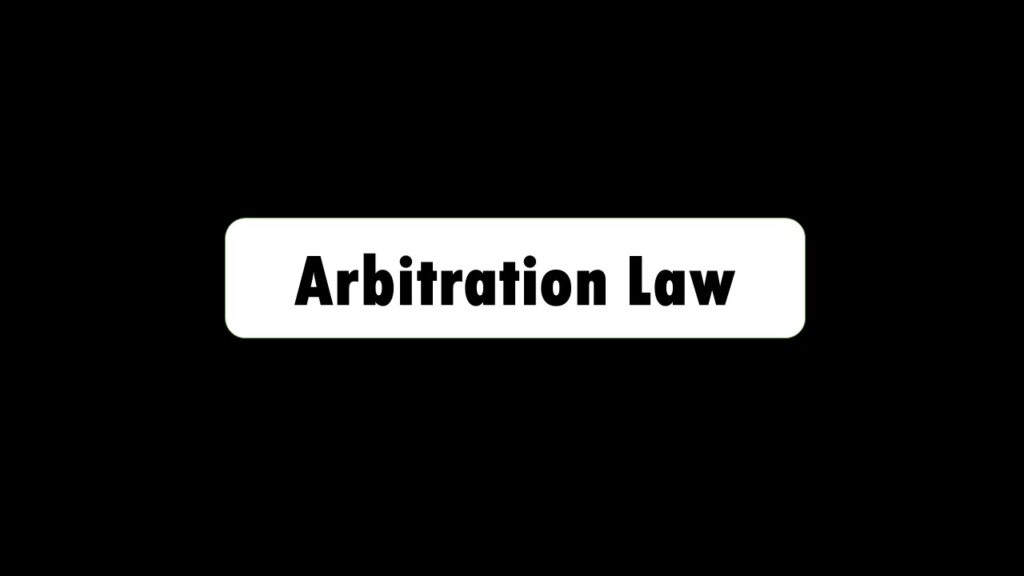M/s S.B.P. & CO. v. Patel Engineering [(2005) 8 SCC 618]: Supreme Court of India
Once a question of jurisdiction and validity of arbitration agreement is decided by the Court while appointing an arbitrator same cannot be decided again by the arbitral tribunal
11. Section 16 of the Act only makes explicit what is even otherwise implicit, namely, that the arbitral tribunal constituted under the Act has the jurisdiction to rule on its own jurisdiction, including ruling on objections with respect to the existence or validity of the arbitration agreement. Sub-section (1) also directs that an arbitration clause which forms part of a contract shall be treated as an agreement independent of the other terms of the contract. It also clarifies that a decision by the arbitral tribunal that the contract is null and void shall not entail ipso jure the invalidity of the arbitration clause. Sub-section (2) of Section 16 enjoins that a party wanting to raise a plea that the arbitral tribunal does not have jurisdiction, has to raise that objection not later than the submission of the statement of defence, and that the party shall not be precluded from raising the plea of jurisdiction merely because he has appointed or participated in the appointment of an arbitrator. Sub-section (3) lays down that a plea that the arbitral tribunal is exceeding the scope of its authority, shall be raised as soon as the matter alleged to be beyond the scope of its authority is raised during the arbitral proceedings. When the Tribunal decides these two questions, namely, the question of jurisdiction and the question of exceeding the scope of Page 1804 authority or either of them, the same is open to immediate challenge in an appeal, when the objection is upheld and only in an appeal against the final award, when the objection is overruled. Sub-section (5) enjoins that if the arbitral tribunal overrules the objections under sub-section (2) or sub-section (3), it should continue with the arbitral proceedings and make an arbitral award. Sub-section (6) provides that a party aggrieved by such an arbitral award overruling the plea on lack of jurisdiction and the exceeding of the scope of authority, may make an application on these grounds for setting aside the award in accordance with Section 34 of the Act. The question, in the context of Sub-Section (7) of Section 11 is, what is the scope of the right conferred on the arbitral tribunal to rule upon its own jurisdiction and the existence of the arbitration clause, envisaged by Section 16(1), once the Chief Justice or the person designated by him had appointed an arbitrator after satisfying himself that the conditions for the exercise of power to appoint an arbitrator are present in the case. Prima facie, it would be difficult to say that in spite of the finality conferred by sub-Section (7) of Section 11 of the Act, to such a decision of the Chief Justice, the arbitral tribunal can still go behind that decision and rule on its own jurisdiction or on the existence of an arbitration clause. It also appears to us to be incongruous to say that after the Chief Justice had appointed an arbitral tribunal, the arbitral tribunal can turn round and say that the Chief Justice had no jurisdiction or authority to appoint the tribunal, the very creature brought into existence by the exercise of power by its creator, the Chief Justice. The argument of learned Senior Counsel, Mr. K.K. Venugopal that Section 16 has full play only when an arbitral tribunal is constituted without intervention under Section 11(6) of the Act, is one way of reconciling that provision with Section 11 of the Act, especially in the context of sub- section (7) thereof. We are inclined to the view that the decision of the Chief Justice on the issue of jurisdiction and the existence of a valid arbitration agreement would be binding on the parties when the matter goes to the arbitral tribunal and at subsequent stages of the proceeding except in an appeal in the Supreme Court in the case of the decision being by the Chief Justice of the High Court or by a Judge of the High Court designated by him.
